Russian Hybrid Warfare
Study Russian hybrid warfare strategy and how the U.S. should counter Putin's expansionism.
July 24 - July 29, 2022
Washington, DC
Shortly before his inauguration in January 1993, and barely a year after the collapse of the Soviet Union, President-elect Bill Clinton declared Russia “the biggest and toughest thing out there.” This judgment would prove prescient—although for many of the next several years, Russia would recede to the background of American foreign policy, a secondary consideration amidst upheaval in the Western Balkans, the war on terror, and the rise of China.
No longer. Less than three decades since the Cold War came to an improbably abrupt and peaceful end, Russia again menaces the West like no other country—posing one of the most consequential and revealing tests of American power and leadership in the contemporary world.
The purpose of this seminar is to study the trajectory of U.S. policy towards Russia over the course of the past 30 years—an arc of history that encompasses six American presidents, three Kremlin leaders, and (along the way) the social, economic, and technological transformation of much of the planet. Our goal will be to understand both how we got to where we are now and where we are going—and what that journey reveals about the character of two of the world’s most consequential countries, the United States and Russia.
Past guest lecturers have included Dan Fried (Atlantic Council), Jamie Fly (German Marshall Fund), and Julia Ioffe (The Atlantic), among others.
Images courtesy Kremlin.ru
Vance Serchuk in conversation with Gen. David Petraeus
This course was part of our residential Political Studies Program. Fellows participate in morning seminars and meet prominent men and women in public life over afternoon and evening sessions.

Vance Serchuk is Executive Director of the KKR Global Institute and an Adjunct Senior Fellow at the Center for a New American Security. Prior to joining KKR, Mr. Serchuk served for six years as the senior national security advisor to Senator Joseph Lieberman (I-Connecticut).

Vance Serchuk is Executive Director of the KKR Global Institute and an Adjunct Senior Fellow at the Center for a New American Security.
Prior to joining KKR, Mr. Serchuk served for six years as the senior national security advisor to Senator Joseph Lieberman (I-Connecticut). In this capacity, he worked on a broad range of international issues, including comprehensive sanctions legislation, the U.S. rebalance to the Asia-Pacific, and the U.S. response to the Arab Spring, traveling to over 60 countries in Asia, Latin America, Africa, and the Middle East.
From January to July 2013, he was a Council on Foreign Relations-Hitachi International Affairs Fellow, based in Japan, and a regular columnist for the Washington Post. His writings have also appeared in the New York Times, Wall Street Journal, and Los Angeles Times.
Mr. Serchuk is a summa cum laude graduate of Princeton University, holds a J.D. from Yale Law School, and was a Fulbright scholar in the Russian Federation.
Readings:
Discussion Questions:
Readings:
George H. W. Bush Policies toward Russia
Discussion Questions:
Readings:
Discussion Questions:
Readings:
Russia Policy under Clinton
Discussion Questions:
Readings:
The NATO Expansion Debate
The Serbian Revolution
Clinton in Retrospect
Discussion Questions:
Readings:
Discussion Questions:
Readings:
Discussion Questions:
Readings:
The Reset
Libya
Russian Internal Developments (2011–2012)
Discussion Questions:
Readings:
U.S. Human Rights Policy
Post-Reset Reflections… and What Next?
Discussion Questions:
Readings:
Syria Diplomacy and the Red Line (2013)
Ukraine Explodes
Syria Escalates (2014–2016)
Russia’s (New?) Worldview
Discussion Questions:
Readings:
Russia and the 2016 Election
Four Views on “What Went Wrong”
Discussion Questions:
Readings:
The Trump Administration’s Russia Policy
China-Russia
Closing Assessments

Nataliya Bugayova
Nataliya Bugayova is a Research Fellow at the Institute for the Study of War (ISW), where she leads the Russia and Ukraine portfolio. Her work focuses on the Kremlin’s foreign policy decision-making and ongoing global campaigns. Prior to ISW, she was the Chief Executive Officer of the Kyiv Post, Ukraine’s independent English-language publication.
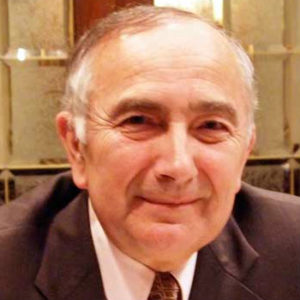
James M. Dubik
LTG James M. Dubik (U.S. Army, Ret.) is a Senior Fellow at the Institute for the Study of War and a Professor at Georgetown University’s Security Studies Program. General Dubik has extensive operational experience in Iraq, Afghanistan, Japan, Korea, Thailand, Bosnia, Haiti, Panama, and in many NATO countries.

Frederick W. Kagan
Frederick W. Kagan is a Senior Instructor with the Hertog War Studies Program at the Institute for the Study of War. The author of the 2007 report “Choosing Victory: A Plan for Success in Iraq,” he is one of the intellectual architects of the successful “surge” strategy in Iraq. He is the Director of AEI’s Critical Threats Project.
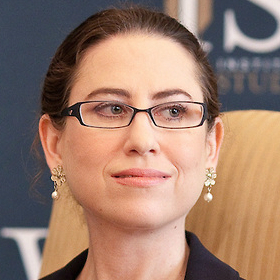
Kimberly Kagan
Kimberly Kagan is a Senior Instructor with the Hertog War Studies Program and founder and president of the Institute for the Study of War. She is a military historian who has taught at the U.S. Military Academy at West Point, Yale, Georgetown, and American University.

Daniel Blumenthal
Dan Blumenthal is a senior fellow at the American Enterprise Institute, where he focuses on East Asian security issues and Sino-American relations. Mr. Blumenthal has served in and advised the US government on China issues for more than a decade.

Christian Brose
Christian Brose is a Senior Fellow at the Carnegie Endowment for International Peace and the Head of Strategy at Anduril Industries, prior to which he served as staff director of the Senate Armed Services Committee. He was also responsible for leading the production, negotiation, and passage of four National Defense Authorization Acts, which set policy and authorized spending for all U.S. national defense activities.
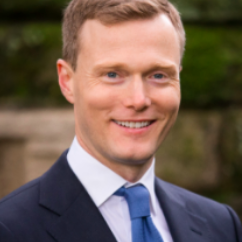
Matthew Kroenig
Matthew Kroenig is a Professor in the Department of Government and the Edmund A. Walsh School of Foreign Service at Georgetown University. A 2019 study in Perspectives on Politics ranked him as one of the top 25 most-cited political scientists of his generation. He has served in several positions in the U.S. Department of Defense and the intelligence community in the Bush and Obama administrations.
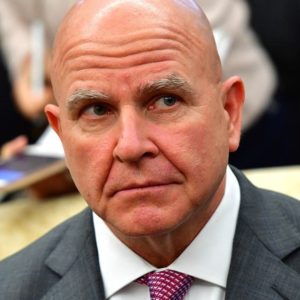
H.R. McMaster
H. R. McMaster is the Fouad and Michelle Ajami Senior Fellow at the Hoover Institution, Stanford University. Previously, he served as the 26th assistant to the president for National Security Affairs and as a commissioned officer in the United States Army for 34 years before retiring as a Lieutenant General. He is author of Battlegrounds: The Fight to Defend the Free World.
Vance Serchuk
Vance Serchuk is Executive Director of the KKR Global Institute and an Adjunct Senior Fellow at the Center for a New American Security. Prior to joining KKR, Mr. Serchuk served for six years as the senior national security advisor to Senator Joseph Lieberman (I-Connecticut).

Vance Serchuk
Vance Serchuk is Executive Director of the KKR Global Institute and an Adjunct Senior Fellow at the Center for a New American Security. Prior to joining KKR, Mr. Serchuk served for six years as the senior national security advisor to Senator Joseph Lieberman (I-Connecticut).
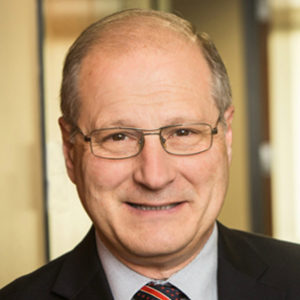
Eric S. Edelman
Ambassador Eric S. Edelman is Counselor at the Center for Strategic and Budgetary Assessments. He retired as a career minister from the U.S. Foreign Service on May 1, 2009. He has served in senior positions at the Departments of State and Defense as well as the White House, where he led organizations providing analysis, strategy, policy development, security services, trade advocacy, public outreach, citizen services, and congressional relations.